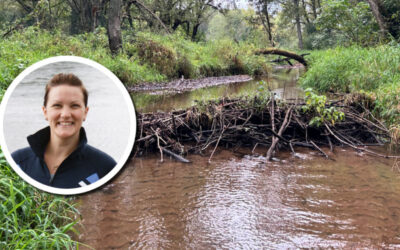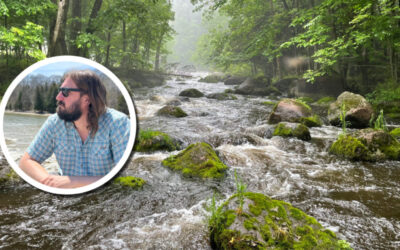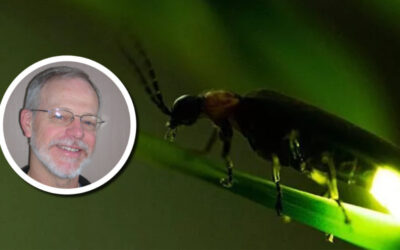Wetland Coffee Break
The Wetland Coffee Break series helps keep our community of wetland lovers connected and learning about wetlands throughout the year, from anywhere! Bring your coffee and learn about wetlands, the plants and animals that call them home, and the many natural benefits they provide to our communities. Sessions are held on Zoom and feature time for audience Q&A.
See below for a list of upcoming presentations and to register. Once you register, you’ll receive an automatic email including the URL link and password you’ll need to access the meeting. We record and post each presentation so you can watch any that you missed live. You’ll find links to these recordings below, and you can also find them on our Facebook page.
We are grateful to all of the presenters for sharing their knowledge and expertise and to everyone interested in learning more about wetlands! If you are interested in giving a Wetland Coffee Break presentation, or if you have a wetland topic you’d like to see covered, please contact Katie.Beilfuss@wisconsinwetlands.org.
We are now able to provide attendance verification to Wetland Coffee Break audience members who attend the live sessions and request this service. We created this mechanism in response to requests from members of the Wetland Coffee Break audience who would like to apply their Wetland Coffee Break learning to their continuing education or certification requirements. Learn more about how to receive attendance verification here.

Register for a Wetland Coffee Break
Carnivorous plants of the Northwoods
Emily Stone, Naturalist & Education Director, Cable Natural History Museum
Friday, March 13, 2026
10:30 am CT
Description
In some low-nutrient wetlands, plants reverse the food chain and become carnivorous to meet their needs. Discover the beauty and the impressive adaptations of these charismatic Northwoods residents with naturalist Emily Stone.
Emily Stone is a naturalist by birth, training, profession, and passion. After earning a Field Naturalist master’s degree from the University of Vermont with a wetland-focused project, Emily became the Naturalist/Education Director at the Cable Natural History Museum in Cable, Wisconsin. Emily writes a weekly “Natural Connections” column published in more than 20 local and regional newspapers. Her third Natural Connections book was published in November 2025.
Common Carex of wet open ground
Aaron Feggestad, Stantec
Friday, March 27, 2026
10:30 am CT
Description
Genus Carex, the true sedges, form a fascinating and diverse group of plants. An evolutionary success story, Carex is the most species-rich genus in Wisconsin with over 150 species. This introductory talk will focus on field identification characteristics of widely ranging Carex species of wet open ground (wet prairie, sedge meadows, fen, marsh). The content will focus on subgenus Carex and will be useful for anyone looking to build upon their knowledge of common species.
Aaron Feggestad has been a practicing wetland professional for the past 20+ years, primarily working in Wisconsin and the Great Lakes Region as a consulting ecologist, volunteer, and educator. Fascinated by the role of Carex in natural area function, and the importance of Carex in the restoration of many types of natural communities, he is working towards a goal of cataloging nearly all the 158 species that occur within the state.
Watch previous presentations
Click “Older Entries” below to see more past presentations, or view our Google Sheet index of past presentations here.
Wetland Coffee Break: How do beavers impact water?
Conservation Biologist Cortney Dean takes a look at the data, challenges, and unexpected findings of beaver-water research in northwestern Wisconsin.
Wetland Coffee Break: Hydrology and Hydraulics 101
The hydrology and hydraulics of the watershed and waterways that we work in are key drivers to understanding wetlands and developing preservation and restoration approaches.
Wetland Coffee Break: Taxonomy, natural history, and conservation of Wisconsin fireflies
Tune in to learn about one of our favorite signs of summer—fireflies!
Wetland Coffee Break: Investigating the relationship between showy ladyslipper and European skipper butterflies
While working on wetland delineations, environmental scientist Matt Knickelbine has been observing instances of showy lady slipper flowers being filled with dead, invasive European skipper butterflies.
Makak Aabajitoon Ganawendang Manoomin: Guiding wild rice conservation with Anishinaabe worldview
Learn more about a collaboration to develop a low-cost remote sensor to monitor environmental factors affecting manoomin (wild rice), and how it aims to complement tribal interests in wild rice restoration and managment.
Wetland Coffee Break: Aquatic habitat management for amphibians and reptiles in Wisconsin
Learn from professor Josh Kapfer some of the more general concepts and approaches that natural resource managers can consider when developing or enacting strategies for amphibians and reptiles in aquatic habitats.






